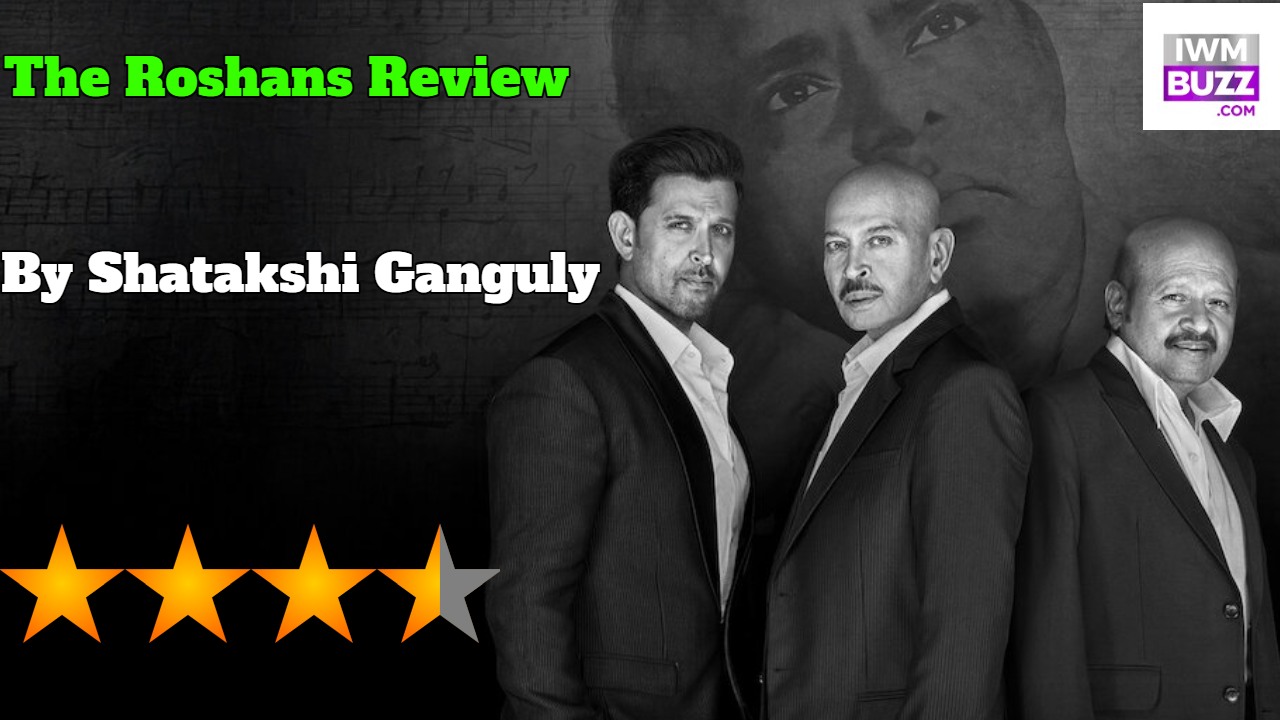Netflix’s The Roshans attempts to salvage the grandeur of this legacy, spanning three generations of talent, creativity, and reinvention.
The result? A fascinating, yet sometimes overdone journey that leans heavily on family triumphs, occasionally to the point of excess.
The documentary begins with an unexpectedly tender moment: Hrithik, in a quiet corner of his home, stumbles upon a cassette recording of his grandfather—a man he never knew. Roshan Lal Nagrath’s voice, preserved in time, becomes the thread that ties the generations together. This is an intimate entry point, and it works. It sets a tone of reverence for the past, while also providing an intriguing window into the origins of the Roshan dynasty. Nagrath’s musical contributions—though overshadowed by the likes of SD Burman or RD Burman—are revealed to be the foundation upon which his sons, and eventually his grandson, would build their own formidable legacies. The first episode, dedicated to him, is the most engaging, drawing us into a world where melodies are timeless and where a relatively unknown composer shaped the sounds of Bollywood.
But as we move from Roshan Lal Nagrath to his sons, the documentary starts to stumble. The decision to dramatize key moments in their lives, while not inherently wrong, begins to feel heavy-handed. Rajesh Roshan’s quiet brilliance, for example, could have been explored more subtly. Instead, the show layers his story with re-enactments that verge on melodrama. Rajesh, despite composing some iconic music, remains in the shadow of Bollywood’s larger-than-life personalities. His decision to keep a low profile, even when his music graced major films, is a fascinating one that deserved more exploration than the dramatic reconstructions that occasionally distract from the poignancy of his journey.
Rakesh Roshan, meanwhile, provides another fascinating but imperfect tale. From a failed acting career to becoming a successful filmmaker, Rakesh’s transformation is truly inspiring. Yet, as with Rajesh, the episode devoted to him seems intent on dramatizing his challenges rather than digging into the true depths of his creative process. The attempt to link Rakesh’s rise to Hrithik’s meteoric success feels somewhat forced. It’s as if the documentary seeks to create an idealized, almost fairytale-like narrative of a family passing the baton of greatness from one generation to the next. But real legacies, as we know, are more complicated—and that’s something the documentary occasionally misses.
When we finally reach Hrithik, the star of the show, the documentary runs into its most shining problem: a lack of introspection. While there’s no doubt that Hrithik’s debut in Kaho Naa… Pyaar Hai was a game-changer, the documentary brushes over the more complex aspects of his career. The struggles, the setbacks, the reinventions—these are the parts of Hrithik’s journey that deserve more space. Instead, the series focuses on his rise, his good fortune, and the infamous Krrish accident, which, while significant, is rehashed in a way that feels more like a plot device than a meaningful exploration of the man behind the star. Hrithik, as presented here, feels more like an icon than a human being. His flaws, his missteps—those moments that define the arc of any lasting career—are left mostly unexplored.
And then, there’s the glaring absence of the women in the Roshan family!
With so much focus on the men, the perspectives of the women, who must surely play a significant role in the family dynamics, are virtually ignored. Their voices, their own stories—there’s so much that’s left unspoken here, and that feels like an opportunity missed.
For a documentary that purports to tell the story of a family, the lack of these voices feels like a glaring oversight.
The Roshans offers a polished, though somewhat one-dimensional, view of a family that has shaped Bollywood.
The episodes on Roshan Lal Nagrath are driving, offering a much-needed spotlight on a figure too often overlooked.
But as the series moves toward Hrithik’s world, it swerves into hagiography—celebrating greatness without truly unpacking the nuances that made it possible. The drama, the re-enactments, the celebratory tone—they all begin to weigh the narrative down.
To give the final call, it is to say that “The Roshans” is an absorbing watch, filled with rich stories and striking visuals, but it lacks the depth and rawness that would have truly done this legendary family justice.
There’s no question the Roshans deserve a place in the pantheon of Bollywood’s greatest, but the documentary, while entertaining, never fully delves into the complexities of their remarkable legacy.
The Roshans is streaming on Netflix.
IWMBuzz rates it 3.5 stars.

